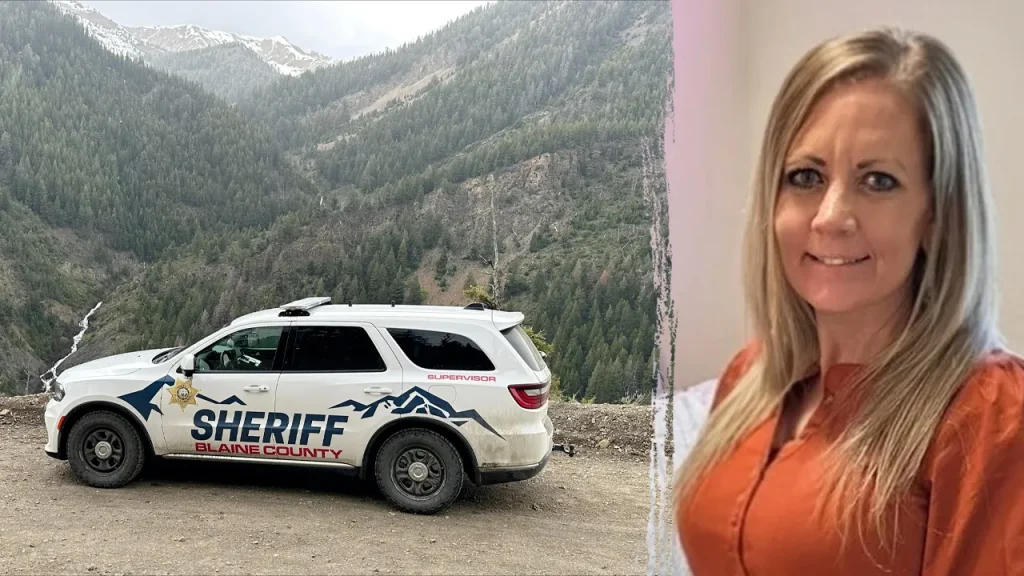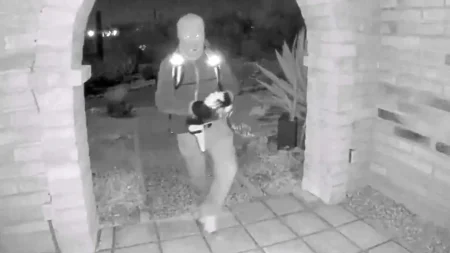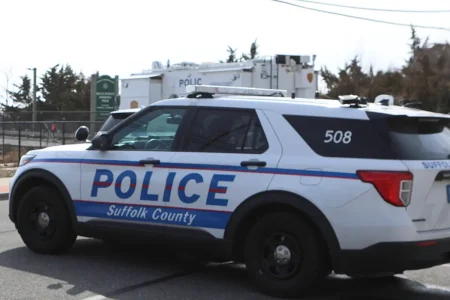Mountain Bikers Rescue Lost Hiker in Idaho Wilderness: A Tale of Survival and Serendipity
In a remarkable display of human kindness and fortunate timing, a group of mountain bikers on their annual adventure in the rugged Idaho wilderness became unexpected heroes when they stumbled upon 46-year-old Heather Wayment, who had been missing for two days. The brothers Tommy and Vinton Gwinn, along with their friend Shelton Robinson, were enjoying their biking and camping trip through the remote trails of Blaine County when they encountered a distressing sight: a woman in her underwear with bloodied feet, clearly in a state of distress. Little did they know that their chance encounter would lead to saving a life that September day, highlighting how the wilderness can bring both peril and unexpected rescues when humanity intersects with nature’s challenges.
The discovery was as surprising for the bikers as it was fortunate for Wayment. When they first approached her, she exhibited signs of fear and trauma, initially refusing their assistance. “She was scared and very guarded. It took about a half hour before she would talk,” Tommy Gwinn explained. Having been disconnected from news during their camping trip, the bikers were unaware that authorities had been searching for Wayment since September 17, a day after she was last seen in the Prairie Creek area. The situation became clearer when three dirt bikers arrived at the scene and recognized Wayment as the missing hiker who had been the subject of an intensive search effort. The remoteness of the location – approximately 17 miles from where Wayment’s vehicle had been found – underscored the extraordinary circumstances of her survival and the serendipitous timing of her discovery.
The harsh environment made Wayment’s survival story all the more astonishing. “This is really rugged country,” Gwinn observed. “She was not on a bike path and had to go over numerous mountains to get where she was. It was so cold at night. It’s remarkable she’s still alive.” The wilderness of Idaho is known for its challenging terrain and dramatic temperature fluctuations, making it perilous for even experienced hikers. For someone to survive two nights alone, inadequately clothed and without proper supplies, speaks to both human resilience and the critical importance of wilderness awareness. Though details about how Wayment became lost or what injuries she sustained remain unclear, her discovery in such a remote location suggests she endured considerable physical and psychological challenges during her ordeal.
The rescue operation quickly transformed from a chance encounter to a coordinated effort involving modern technology and traditional human kindness. One of the dirt bikers contacted emergency services using a satellite phone, demonstrating how technology can provide a lifeline in remote locations. Rescue coordinators provided coordinates for a helicopter landing, but the terrain presented yet another challenge. “The only safe place for the helicopter to land was in a meadow about a half mile below where we were,” Robinson recounted. In a touching display of cooperation, one of the dirt bike riders transported Wayment down to the landing site on the back of his bike, “saving the rescue crews time” and potentially making a critical difference in her medical outcome. This collaborative effort between strangers, brought together by circumstance in the wilderness, culminated in Wayment being airlifted to St. Alphonsus Medical Center in Boise for treatment.
The rescue highlights the complex interplay between wilderness adventure and safety preparedness that outdoor enthusiasts must navigate. “It’s always in the back of your mind that something could happen and you need to be rescued,” Robinson reflected after the incident. His observation touches on an essential truth for all who venture into remote areas: emergency situations can develop rapidly, and survival often depends on both personal preparation and the assistance of others. The mountain bikers and dirt bikers who aided Wayment weren’t part of any official search team, yet their presence and willingness to help made all the difference. This reality underscores the unofficial code among outdoor adventurers—a shared understanding that mutual aid is part of the wilderness experience, where today’s helper might be tomorrow’s person in need.
The Blaine County Sheriff’s Office publicly acknowledged the critical role that these civilian adventurers played in Wayment’s rescue, thanking them alongside their deputies who had been searching for two days. “We especially want to thank our Blaine County Sheriff’s Office deputies for their incredible efforts over the past two days, and the mountain bikers who were able to contact law enforcement, guide the Life Flight crew to Heather, and remain by Heather’s side offering aid until medical assistance could arrive,” the statement read. This acknowledgment reflects the often overlooked truth about wilderness rescues: they frequently succeed through a combination of professional services and civilian assistance. As Robinson humbly stated, “We’re super grateful we found her… It was cool to see how an actual rescue works. I was very impressed.” His words capture the essence of this remarkable story—a reminder that in the vast wilderness, human connections and compassion remain our most valuable survival tools.









